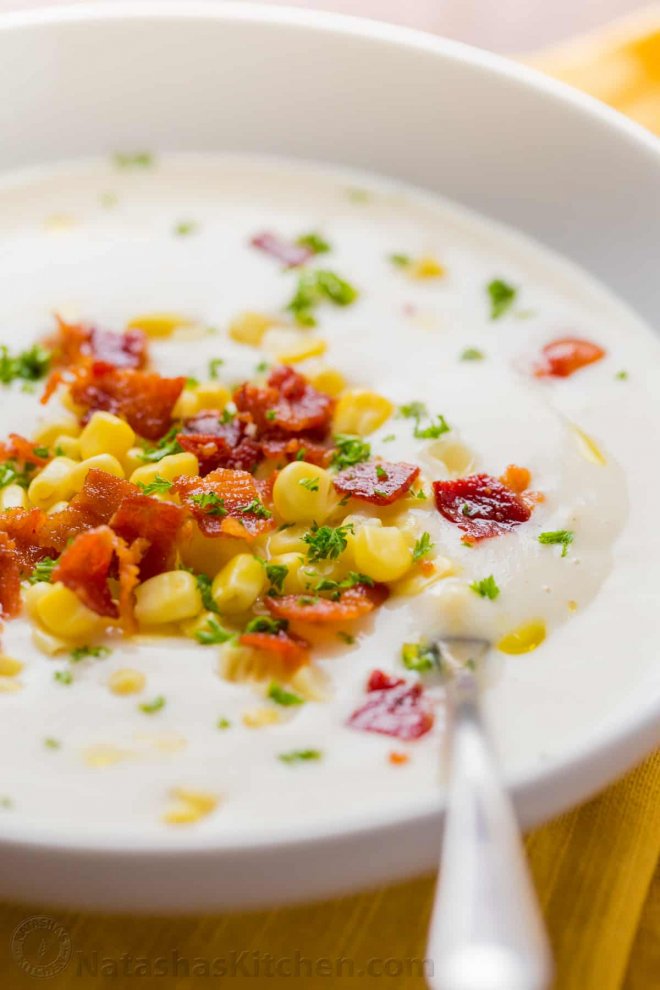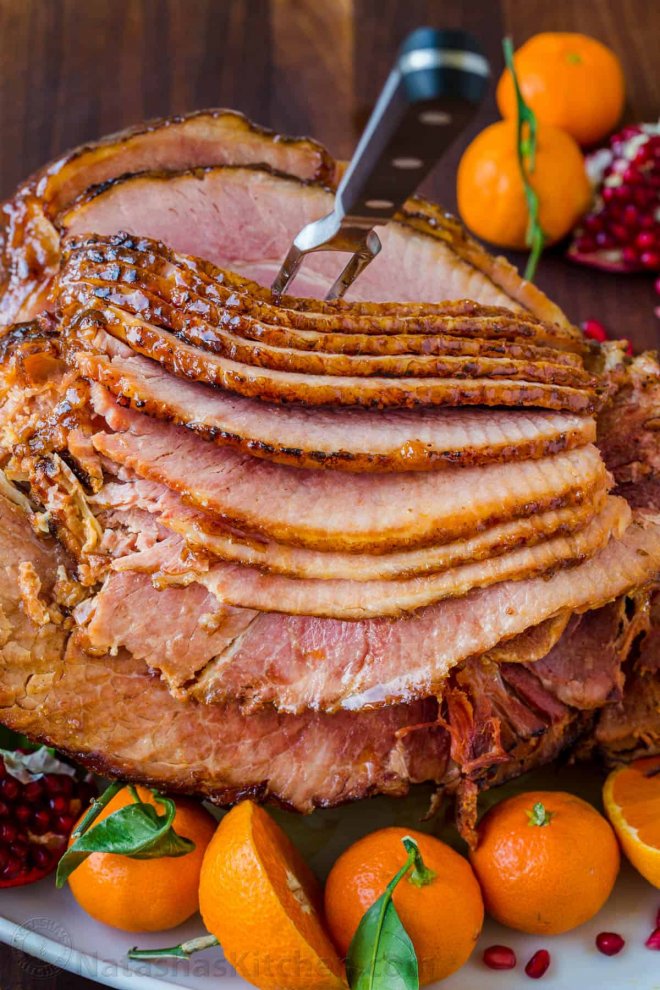Baked Salmon Recipe (VIDEO)
This Baked Salmon recipe is juicy, flaky, and full of flavor from the zesty fresh lemon and tangy Dijon marinade. This recipe sounds fancy, but it is so quick and easy to make with just a handful of ingredients!According to my readers, this easy Oven-Baked Salmon has impressed in-laws, saved marriages, and has even left picky eaters smiling, so watch the video tutorial below and find out why everyone loves it.
 This post may contain affiliate links. Read my disclosure policy.
This post may contain affiliate links. Read my disclosure policy.The Best Baked Salmon RecipeWhen it comes to parties and entertaining, this 20-minute roasted salmon is one of our go-to seafood recipes along with the best Fish Tacos and Creamy Shrimp Pasta.
We have so many incredible baked salmon recipes on our site, from Pan-Seared Salmon to Air Fryer Salmon, but this is by far the crowd favorite. With more than a thousand 5-star reviews and my own kids’ stamp of approval (they always ask for seconds), this Baked Salmon with Garlic and Dijon recipe had to grace the pages of my cookbook, Natasha’s Kitchen! It’s safe to say that this is the recipe to try if you are new to cooking fish.
Baked Salmon Video Watch Natasha make Baked Salmon. It might sound intimidating, but it is so simple and flavorful, and the presentation is impressive. The marinade keeps the salmon so moist, that the fish just flakes right onto your fork with each bite.
Why You’ll Love This Salmon Recipe
 Pro Tip: To remove the tiny pin bones from your salmon, run your fingers across the surface of the fillet to feel for bones. They are difficult to see, so feeling for them is the best way to locate them. Use kitchen tweezers to remove the little bones, pulling in the direction that they lie.
Pro Tip: To remove the tiny pin bones from your salmon, run your fingers across the surface of the fillet to feel for bones. They are difficult to see, so feeling for them is the best way to locate them. Use kitchen tweezers to remove the little bones, pulling in the direction that they lie.The Best Marinade for Baked SalmonI am convinced this is the best marinade for seafood. It works on shrimp, Lobster Tails, Salmon Skewers, and all kinds of fish (we also snuck it onto these Chicken Legs)! The best part is – there is very little prep time and no waiting time required, just brush it on and bake.

 How to Make Oven-Baked SalmonIt’s so simple to learn how to bake salmon in the oven in just a few easy steps. It’s sure to become a go-to recipe for your family!
How to Make Oven-Baked SalmonIt’s so simple to learn how to bake salmon in the oven in just a few easy steps. It’s sure to become a go-to recipe for your family! Pro Tip: Once the glaze is on, bake right away, otherwise the acid in the lemon juice will start to cook the fish and make it tough. Trust me, slathering the glaze on just before baking gives this dish plenty of flavor.
Pro Tip: Once the glaze is on, bake right away, otherwise the acid in the lemon juice will start to cook the fish and make it tough. Trust me, slathering the glaze on just before baking gives this dish plenty of flavor.Should you Bake Salmon Covered or Uncovered?Salmon cooks quickly at high temperatures. We prefer baking uncovered so it doesn’t steam cook.
How Long to Bake SalmonBaking the salmon at a high temperature quickly roasts the exterior and seals in the natural juiciness of the salmon, making it flaky, tender, and moist. This proven roasting method always produces excellent results:
 How to Buy SalmonThere are many types of salmon out there and I always recommend buying the best you can afford.
How to Buy SalmonThere are many types of salmon out there and I always recommend buying the best you can afford.- Salmon appearance – should have silver, shiny skin. Wild-caught salmon is (bright pink/red) and farm-raised is naturally greyish.
- Thickness – Choose a plump fillet that does not appear dry or bruised. Thick and fatty fillets such as Alaska King Salmon are more forgiving if overcooked.
- Smell test – Salmon should not smell fishy. It should smell more like salt water than a strong, fishy odor. I always smell the fish at the fish counter to ensure freshness.
- Buy it when you need it – based on USDA guidance, fresh salmon should be cooked within 1-2 days of purchase.
- Skin-on vs. skinless salmon – we have made baked salmon with the skin on and skinless. Baking with the skin-on creates a natural barrier between the hot pan and seals in the natural oils and flavors.
- Roasted Potatoes
- Caesar Salad
- Green Beans Almondine
- Creamy Cucumber Salad
- Roasted Asparagus
 Storage
Storage- Teriyaki Salmon
- Honey Glazed Salmon
- Tuscan Salmon
- Salmon and Asparagus
- Brown Sugar Salmon
- Smoked Salmon Dip
[圖擷取自網路,如有疑問請私訊]
|
本篇 |
不想錯過? 請追蹤FB專頁! |
| 喜歡這篇嗎?快分享吧! |
相關文章
kitchen_recipe























